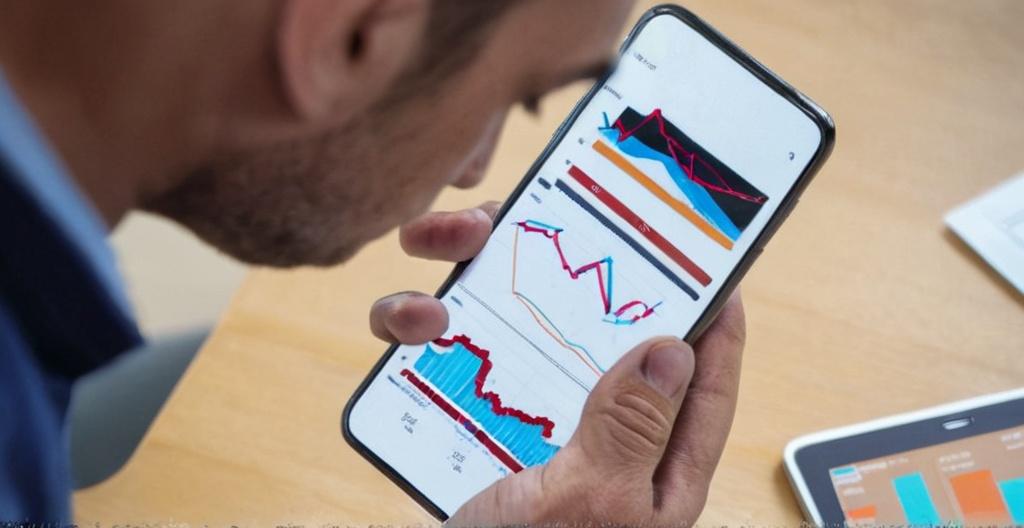Key Take Aways About Building a Net Worth Statement
- Understanding net worth is crucial for traders to gauge financial health and inform trading decisions.
- Assets include cash, real estate, stocks, bonds, derivatives, and cryptocurrencies; liabilities encompass loans and debts.
- Regularly track and evaluate the value of trading assets using technical analysis tools like moving averages, RSI, and MACD.
- Calculate and monitor liabilities to avoid financial pitfalls.
- Net worth impacts trading decisions, risk appetite, and portfolio diversification.
- Create and update a net worth statement using digital tools or spreadsheets.
- A comprehensive net worth statement aids in strategic financial planning and risk management.

Understanding Net Worth in the Context of Trading
Calculating your net worth ain’t just for the rich and famous. It’s crucial for traders too. Just like how you analyze your trading portfolio, you gotta keep tabs on your finances. Why? Knowing your net worth helps gauge your financial health and informs your trading decisions. It’s the simple difference between what you own and what you owe.
Assets and Liabilities: The Basics
So, what’s in an asset? Anything you own that has value. This is not limited to cash or real estate. In the trading world, assets also include stocks, bonds, and derivatives. They’re like your heavy-hitters, the ones that could shape your net worth significantly. Liabilities, on the other hand, are your debts or obligations. Think loans, credit card balances, and the occasional unpaid poker debt.
Tracking Your Trading Assets
You probably have a trading portfolio filled with various instruments. Calculating the value of these assets is a straightforward task. Regularly track the market value of your stocks and bonds. Don’t forget to include dividends or interest earned. Cryptocurrencies? Yep, they belong here too. Be cautious with their volatile nature, though. One day, you’re riding high; the next, you’re panicked enough to consider selling your grandma’s prized vase.
The Role of Technical Analysis
Technical analysis doesn’t just tell you when to buy or sell. It aids in evaluating the performance and worth of your assets. Analyzing charts and patterns helps anticipate market moves, which in turn helps in asset valuation. Moving averages, RSI, and MACD aren’t just buzzwords; they’re tools to gauge the strength of your investments, contributing to the accuracy of your net worth statement.
Assessing Liabilities
Debts could be a drag if not accounted for. Listing your liabilities is an eye-opener. Calculate your outstanding loans, credit card debts, and any other liabilities. Keeping a keen eye on interest rates and penalties will forewarn of any potential financial hiccups down the line. It also increases your chances of sleeping well at night, not dreaming of debt collectors or mounting interest rates.
How Net Worth Affects Trading Decisions
Your net worth influences every trade you make. Higher net worth means a better cushion for riskier trades. It provides the confidence to diversify and expand your trading horizons. Imagine wanting to invest in a volatile currency pair or a risky stock. Those with a stronger financial backing might see it differently from those just scraping by.
Portfolio Diversification
A diversified portfolio can stabilize the jarring effects of market volatility. Considering different asset classes buffers against unpredictable market swings. Mixing bonds, stocks, and alternative assets like commodities could give you a balanced portfolio. Think of it like having pizza with varied toppings. You’re not stuck with the same flavor, and even if one topping’s off, you still have the rest to relish.
Creating a Net Worth Statement
Drafting a net worth statement sounds as exciting as watching paint dry, but it’s worth it. Start by listing all assets and then all liabilities. Subtract liabilities from assets, and voila, you’ve got your net worth. Updating this statement regularly is like maintaining a trading journal. It shows where you hit gold or got hit by a boulder.
Digital Tools and Spreadsheets
Manual calculations? Skip the hustle. Use spreadsheets or personal finance software. They eliminate human error and save time. Automating feeds from trading platforms to spreadsheets establishes accuracy in real-time valuation. You’re essentially letting technology do the grunt work while you strategize your next big trade.
Why It Matters
At the end of day, knowing your net worth is like getting a regular health check-up. Ignorance isn’t bliss here. It has practical implications for your trading strategy, risk management, and financial planning. Regular updates allow you to pivot strategies, reallocate assets, or reconsider liabilities before things get dicey.
In sum, maintaining a comprehensive net worth statement is akin to having a road map for your financial journey. It provides clarity and confidence, attributes every trader should covet. After all, the trading world’s a rollercoaster, and staying informed ensures you ride more highs than lows.